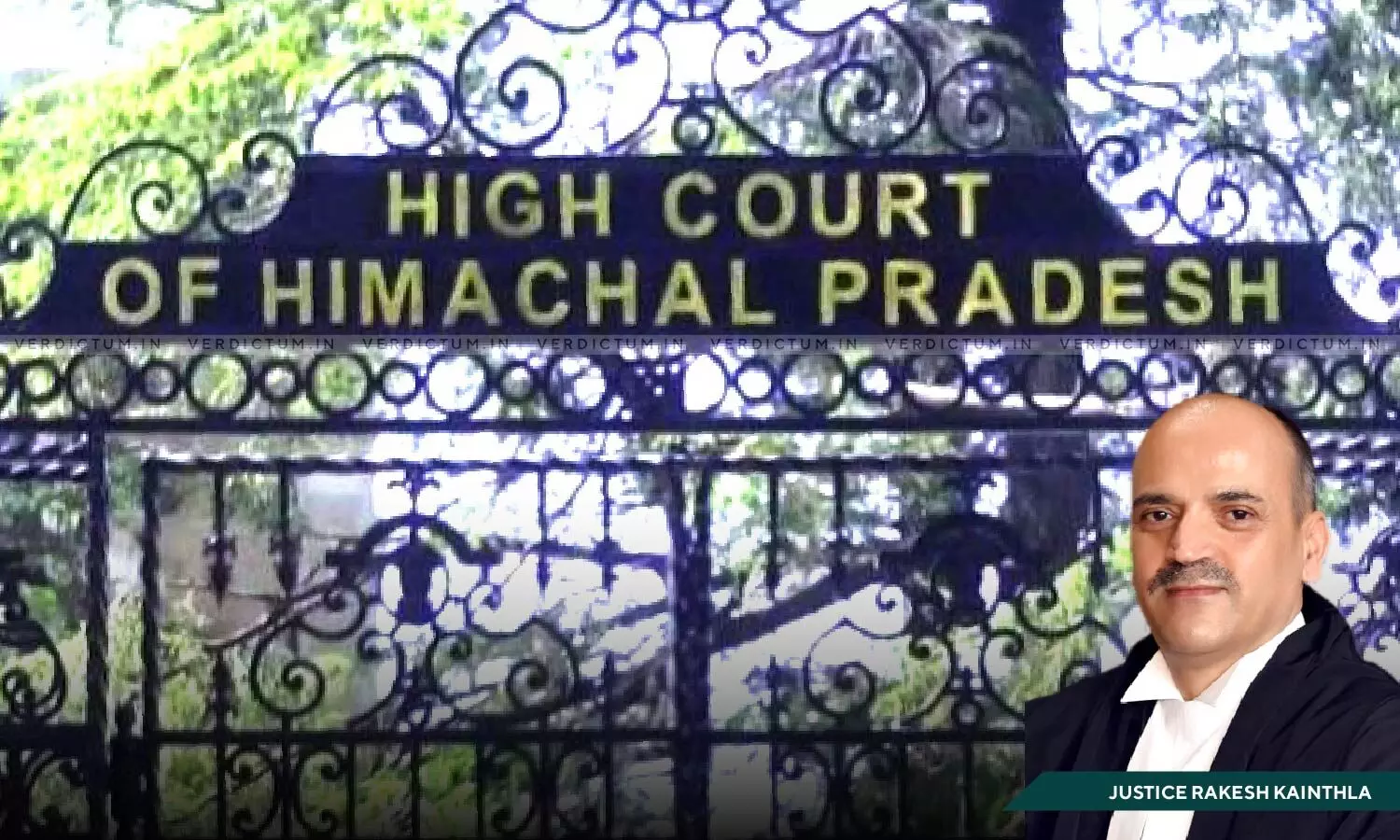
Justice Rakesh Kainthla, Himachal Pradesh High Court
Witness’s Statement On Driver’s Negligence By Itself Not Legally Admissible Evidence: Himachal Pradesh High Court Upholds Acquittal In Road Accident Case
 |
|The appeal before the Himachal Pradesh High Court was directed against the judgment of the Trial Court, acquitting the respondent accused.
The Himachal Pradesh High Court has upheld the order of acquittal of a car driver in a road accident case after noting the negligence of the motorcycle rider. The High Court also observed that the witness’s statement that the driver was negligent by itself, without anything more, would not constitute legally admissible evidence.
The appeal before the High Court was directed against the judgment of the Trial Court whereby the respondent-accused was acquitted of the commission of offences punishable under Sections 279, 337, 338 and 304-A of the Indian Penal Code (IPC).
The Single Bench of Justice Rakesh Kainthla said, “Therefore, the statement of the witness that the driver was negligent by itself without anything more do not constitute legally admissible evidence upon which a reliance can be placed by the Court of law to base its judgment.”
Deputy Advocate General Prashant Sen represented the Appellant, while Advocate Divya Raj Singh represented the Respondent.
Factual Background
It was alleged that the informant (PW1) had gone to Bane-Di-Hatti on his motorcycle with his father Jagat Ram (since deceased). A Scorpio Jeep came at a high speed and hit the motorcycle. The Informant and his father, Jagat Ram sustained injuries. They were taken to the Civil Hospital, but the father succumbed to his injuries. The informant made a statement to the police and an FIR was registered. The ASI conducted the investigation and seized the Jeep along with the motorcycle.
The Constable found that there was no mechanical defect that could have led to the accident. However, damage was caused to the vehicles due to the accident. The Trial Court issued the notice of accusation to the respondent accused for the commission of offences punishable under Sections 279, 337, 338 and 304-A of IPC, to which the accused pleaded not guilty and claimed to be tried. The prosecution's case regarding the negligence of the accused was not proved beyond a reasonable doubt, and the accused was acquitted. Aggrieved thereby, the State filed an appeal before the High Court.
Reasoning
Considering the fact that the appeal had been filed against a judgment of acquittal, the Bench referred to the judgment of the Supreme Court in Surendra Singh v. State of Uttarakhand (2025) wherein it has been observed that the Court can interfere with a judgment of acquittal if it is patently perverse, is based on misreading of evidence, omission to consider the material evidence and no reasonable person could have recorded the acquittal based on the evidence led before the Trial Court.
The Bench noted that PW1 had stated that the accident occurred due to the negligence of the driver of the Scorpio. The Bench was of the view that this statement would not help the prosecution because a witness is not permitted to derive any inference from the facts, but he is supposed to place the facts before the Court, leaving the jury or the judge, when he is sitting without the jury, to draw the inferences. “The statement of a witness that the driver of the vehicle was negligent is an inference, which cannot be drawn by the witnes”, it added.
Reference was made to Rule 2 of the Road Regulations, 1989, which states that the driver of a vehicle shall drive the vehicle as close to the left side of the road as may be expedient and shall allow all the traffic which is proceeding in the opposite direction to pass on his right side. The Bench found that the driver of the Scorpio was driving towards the left side of the road, and as per Rule 2, there was no negligence on his part. The motorcycle, on the other hand, was being driven towards its right side, which was a violation of Rule 2. “Thus, the learned Trial Court had rightly held that the negligence of the motorcycle rider led to the accident”, it said.
In the case at hand, since Naresh Kumar (PW1) was entering the main road, therefore, he was supposed to give way to the already moving traffic on the main road. Considering that in his cross-examination he had stated that he was not aware of the distance from which he had seen Scorpio, the Bench said, “This admission shows that he had not followed the Rule of the Road Regulation for giving way to the traffic moving on the road.” In light of the fact that the accident did not occur due to the high speed of the Scorpio but because the motorcycle was being driven towards the right side of the road, the Bench stated, “Had the motorcycle been driven towards its left side or the motorcyclist had taken precautions before entering the main road, the accident would not have occurred. Hence, the presence of skid marks will not establish the negligence of the accused.”
Thus, finding no infirmity in the judgment passed by the Trial Court, the Bench dismissed the appeal.
Cause Title: State of H.P. v. Baldev Singh alias Kewal Singh (Neutral Citation: 2025:HHC:18768)
Appearance
Appellant: Deputy Advocate General Prashant Sen
Respondent: Advocate Divya Raj Singh